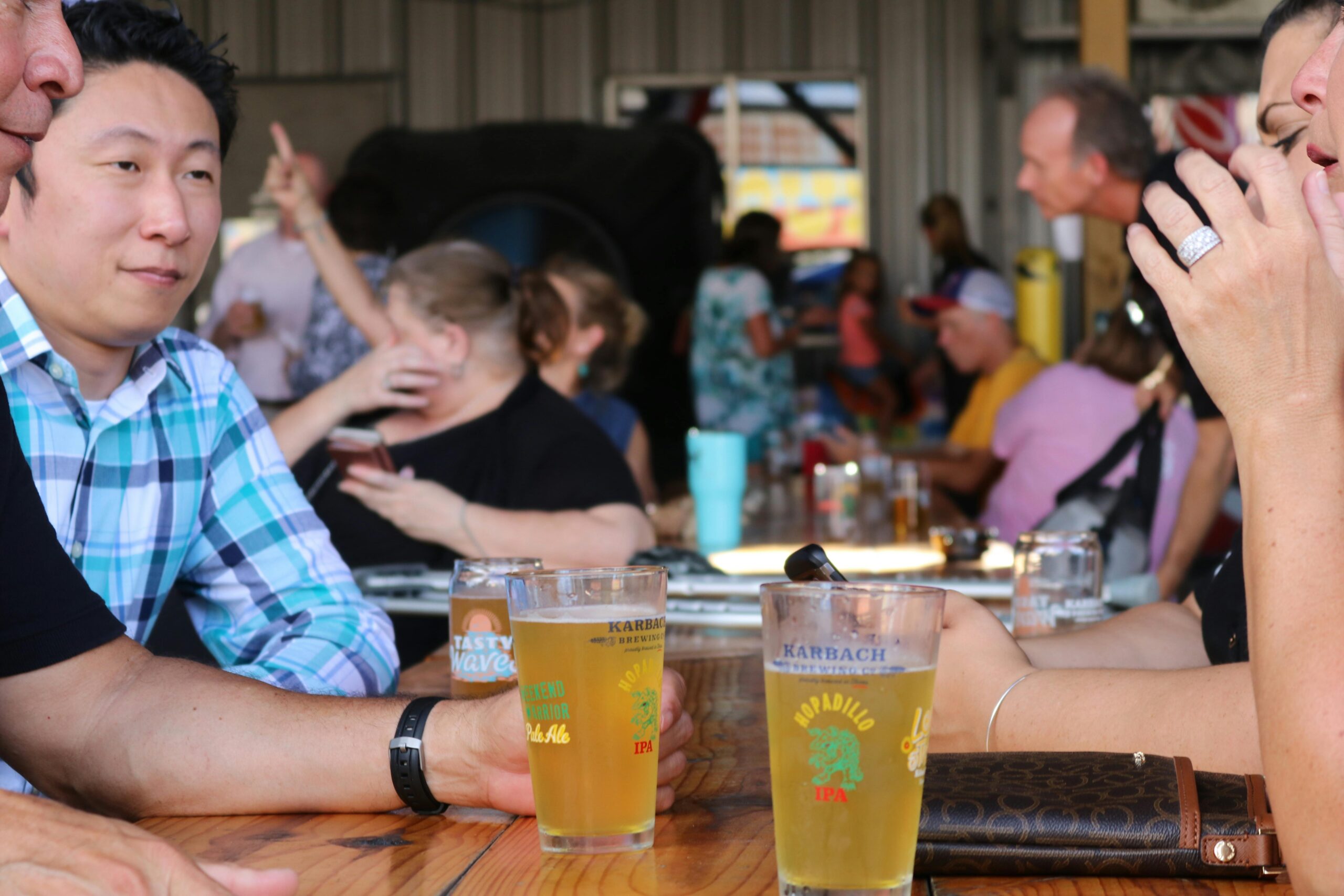Are you planning a trip to Utah and curious about Utah alcohol laws? Understanding the unique alcohol regulations in Utah is crucial for ensuring a smooth and enjoyable visit. Did you know that the state has some of the strictest liquor laws in the United States? From the legal drinking age to the sale of alcoholic beverages, navigating these rules can be tricky. Many visitors are surprised to learn about the restrictions on where and when you can buy alcohol. What if you’re looking for the best places to enjoy a drink? This guide will unravel the complexities of Utah’s alcohol laws, empowering you with the knowledge needed for your next adventure. Whether you’re interested in the hours of alcohol sales or the rules surrounding private clubs, we’ve got you covered. So, are you ready to dive into the fascinating world of Utah’s drinking laws? Keep reading to discover essential tips and insights that will make your stay memorable while keeping you compliant with local regulations. Understanding these laws will not only enhance your trip but also help you avoid any potential pitfalls.
Understanding Utah’s Unique Alcohol Regulations: 7 Key Facts Every Visitor Must Know
When planning a trip to Utah, it’s vital to be aware of the state’s unique alcohol regulations. Many visitors find themselves surprised by the laws governing alcohol sales and consumption. Understanding these regulations can help avoid confusion and ensure a smooth experience during your visit. Here are seven key facts about Utah’s alcohol laws that every visitor should know.
1. The State-run System
Utah has a distinctive approach to alcohol distribution. Most of the alcoholic beverages are sold through state-run stores, known as the Department of Alcoholic Beverage Control (DABC). These stores offer a limited selection of higher alcohol content beverages, while beer with lower alcohol content can be found at grocery stores and convenience stores. It’s important to note that the DABC stores operate on specific hours, so planning ahead is crucial.
2. Beer and Alcohol Content
Beer in Utah is classified differently than in many other states. The state allows the sale of beer with an alcohol content of up to 5% ABV (alcohol by volume) in grocery stores. However, if you’re looking for stronger beer, you’ll have to visit a DABC store. Craft breweries, which have become popular, can sell higher alcohol content beer, but it must be consumed on-site or purchased in specific amounts.
3. Liquor Licensing Rules
Bars and restaurants in Utah must obtain a special license to sell liquor. There are different types of licenses depending on the establishment’s size and type. For example, a full-service restaurant might have a different license than a bar. Furthermore, patrons must also buy a food item to drink alcohol at these establishments, which is referred to as the “food-to-drink ratio” requirement. This rule can be confusing for newcomers, so it’s a good idea to check the menu before ordering.
4. Happy Hour Restrictions
Unlike many other states, Utah has strict restrictions on happy hour promotions. Establishments cannot offer discounted drinks during specific hours, which limits the ways they can attract customers. Instead, they might offer special deals on food or have set prices for drinks. This can be a shock for visitors who are used to more flexible happy hour laws elsewhere.
5. ID Requirements
To purchase alcohol in Utah, you must show valid identification proving that you are at least 21 years old. Acceptable forms of ID includes a driver’s license, passport, or military ID. Some establishments may even require a second form of identification. It’s a good practice to carry your identification at all times when planning to consume alcohol.
6. Open Container Laws
Utah has strict open container laws. It is illegal to have an open container of alcohol in a moving vehicle. This applies to both drivers and passengers. If you’re caught, you could face hefty fines or other penalties. So, it’s best to consume alcohol within designated areas or in private residences.
7. Dry Counties and Local Regulations
While most of Utah allows alcohol sales, there are dry counties and specific local regulations that visitors should be aware of. Some areas may have restrictions on when alcohol can be sold or consumed. For example, certain counties may have stricter rules during holidays or festivals. Always check local regulations to avoid any unexpected issues.
Key Takeaways
- State-run Stores: Buy higher alcohol content beverages at DABC.
- Alcohol Content: Beer is limited to 5% ABV in grocery stores.
- Licensing: Restaurants and bars need special licenses to serve alcohol.
- Happy Hour: Restrictions limit discounted drink promotions.
- ID Laws: Always carry valid identification when purchasing alcohol.
- Open Container: No open containers allowed in moving vehicles.
- Local Regulations: Be aware of dry counties and specific local rules.
Navigating Utah’s alcohol regulations can be a bit tricky, but being informed helps you enjoy your visit without any hiccups. From the state-run stores to the special licensing requirements, understanding these elements will make your experience in Utah much more enjoyable. So, whether you’re planning to hit the slopes or explore the beautiful national parks, knowing these alcohol laws will help you make the most of your trip.
Top 5 Common Misconceptions About Alcohol Laws in Utah: Debunking Myths for Tourists
Visiting Utah can be a unique experience, especially with its diverse landscapes and rich history. But if you’re planning to enjoy a drink while there, you might encounter some confusion regarding the state’s alcohol laws. Many myths and misconceptions swirl around Utah alcohol laws, particularly among tourists. Let’s dive into the top five myths, helping you navigate these waters without running afoul of the law.
1. You Can’t Buy Alcohol on Sundays
One of the most common misconceptions about Utah alcohol laws is that you can’t buy alcohol on Sundays. This is not entirely true. While it’s true that grocery stores cannot sell any kind of alcohol on Sundays, state liquor stores do operate on reduced hours. They open from 12 PM to 5 PM. So, if you planning to stock up for your Sunday BBQ, just remember to hit the state liquor store during those hours.
2. All Drinks Have to Be 3.2% Alcohol by Weight
Another myth that confuses many visitors is the idea that all alcohol in Utah is limited to 3.2% alcohol by weight. This is a historical law that was phased out. In bars and restaurants, they can serve full-strength beer, wine, and spirits. But, grocery and convenience stores still can only sell beer that is 3.2% alcohol by weight or lower. So, if you’re wanting to sip on something stronger, you’ll need to visit a bar or a state liquor store.
3. You Can’t Have a Drink in Public Places
The belief that public drinking is illegal in Utah is a misunderstanding. You can indeed enjoy a drink in certain public areas, but there are restrictions. For example, parks, beaches, and other public spaces may have specific regulations. Generally speaking, Utah allows public drinking in designated areas or events, but it’s always best to check local laws before cracking open a cold one.
4. You Have to Order Food to Drink Alcohol
Another widespread myth is that you must order food if you want to drink alcohol at a restaurant. This is partly true, but it varies by establishment. Many restaurants do require patrons to order food with their drinks, especially during busy hours. However, there are establishments that allow you to order just drinks. It’s a good idea to check the menu or ask the staff about their policies before you sit down.
5. You Can’t Take Drinks To-Go
Many tourists believe that taking drinks to-go is a definite no-go in Utah. However, this varies by location and type of drink. Some restaurants offer “to-go” drinks, especially cocktails, and this has become more common since the pandemic. Still, it’s important to know that this is not universal, and some places will not allow you to leave with your drink. Always check with the staff before assuming you can take your drink with you.
Key Takeaways About Utah Alcohol Laws
To sum it up, here’s a quick list of what you need to know about Utah alcohol laws:
- State liquor stores open on Sundays from 12 PM to 5 PM.
- Full-strength beer, wine, and spirits are available in bars and restaurants.
- Public drinking is allowed in certain designated areas.
- Food orders may be required in some restaurants when ordering alcohol.
- Some establishments allow drinks to-go, but always ask first.
Practical Tips for Tourists
- Plan Ahead: If you’re thinking of enjoying a drink, know when and where you can buy it. Have a backup plan for Sundays.
- Ask Questions: Don’t hesitate to ask staff about their alcohol policies and hours.
- Respect Local Laws: Always adhere to local regulations, especially regarding public drinking and to-go orders.
When visiting Utah, it’s essential to understand the alcohol laws to make the most of your experience. By debunking these common misconceptions, you can enjoy your time in the state without any legal worries. Remember, knowledge is power, especially when it comes to navigating unfamiliar laws. So, enjoy your trip and raise a glass responsibly!
What You Can and Cannot Do: Navigating Utah’s Alcohol Laws in 2023
Navigating the intricacies of alcohol laws can be confusing, especially when you are visiting somewhere new. In Utah, the laws surrounding alcohol are pretty unique and it’s crucial for both residents and visitors to understand what they can and cannot do. This article aims to provide a comprehensive overview of Utah’s alcohol laws in 2023, ensuring you have the knowledge for a smooth experience.
Understanding Utah’s Alcohol Laws
Utah is known for its strict alcohol regulations that are deeply influenced by the state’s cultural background. The state has a long history of temperance and its laws reflect that. There’s a few key points that everyone should know when dealing with alcohol in Utah:
Legal Drinking Age: The legal drinking age in Utah is 21 years old. This is pretty standard across the United States, but there are some nuances in terms of purchasing and consuming.
Alcohol Content Limits: Unlike many other states, Utah has specific limits on alcohol content. For example, beer sold in grocery stores cannot exceed 5% alcohol by volume (ABV). If you want stronger beer, you must go to a state-run liquor store.
Liquor Stores: Only state-run stores can sell liquor, and these stores have limited hours. They typically close on Sundays and major holidays, which can catch visitors off guard.
Bar Operations: Bars in Utah can sell alcohol, but they must adhere to certain rules. For instance, they can only serve drinks if you’re ordering food, and there’s a system of “private clubs” you may need to join if you’re a newcomer.
What You Can Do
When navigating Utah’s alcohol scene, knowing what’s permissible can help you avoid any legal issues. Here’s a brief list of what you can do:
Purchase Beer: You can buy beer with up to 5% ABV from grocery and convenience stores without any special permissions.
Attend Events: Public events often have permits to serve alcohol. Make sure to check the event’s guidelines to know the rules regarding alcohol consumption.
Drink in Designated Areas: Many restaurants and bars have outdoor patios where you can enjoy your drink. Just remember to always keep it within the designated areas.
Bring Your Own Alcohol (BYOB): Some restaurants allow customers to bring their own wine or beer, but you should check with the establishment beforehand.
What You Cannot Do
There are also quite a few things that are strictly prohibited. Here’s a rundown:
Drink in Public Places: Consuming alcohol in public spaces such as parks or streets is generally illegal. You could face fines for this.
Purchase Stronger Alcohol in Grocery Stores: As mentioned, grocery stores cannot sell beer over 5% ABV. So if you’re looking for something stronger, you’ll need to go to a state liquor store.
Serve Yourself: In bars, you cannot serve yourself alcohol. Staff must pour drinks for customers, which can feel a bit odd if you’re used to self-service.
Drive Under the Influence: Like everywhere else, driving with a blood alcohol content (BAC) over 0.08% is illegal and could land you in serious trouble.
Important Historical Context
Utah’s alcohol laws are not just random rules; they stem from a rich history of temperance movements and the influence of the Church of Jesus Christ of Latter-day Saints, which promotes health and sobriety. These historical factors have shaped the current legal landscape regarding alcohol consumption in the state.
Quick Reference Table: Utah Alcohol Laws
| Activity | Allowed | Not Allowed |
|---|---|---|
| Purchase beer (5% ABV) | Yes | Stronger beer in stores |
| Drink in public | No | Yes |
| BYOB at restaurants | Sometimes | Without permission |
| Drive with BAC over 0.08% | No | Yes |
Things to Keep in Mind
When you’re visiting Utah, it’s also a good idea to be aware of local customs and practices. For example, many locals may have a different outlook on drinking compared to other states, so it’s respectful to be cautious.
If you’re planning to enjoy the local nightlife, familiarize yourself with the state’s regulations before you go out. Being informed can save you a lot of trouble and help you make the most of your visit.
In summary, Utah’s alcohol laws can be quite different from what many people are used to in other states. By knowing what you can and cannot do, you can navigate these laws effectively during your next visit. Stay informed, and enjoy your time in the Beehive State!
The Ultimate Guide to Purchasing Alcohol in Utah: Stores, Hours, and More
When you planning a trip to Utah, being aware of the state’s alcohol laws is crucial for a smooth experience. Utah has a unique set of regulations that can catch many visitors off guard. This guide helps you navigate these laws, find out where you can buy alcohol, and understand the hours of operation.
Understanding Utah Alcohol Laws
Utah’s approach to alcohol is different from most states in the U.S. The laws are strict and often confusing. Here are some key points to consider:
Alcohol Content Limits: In Utah, beer sold in grocery stores and convenience stores is limited to 5% alcohol by weight, which is roughly 4% alcohol by volume. If you looking for stronger beer, you’ll have to visit a state-run liquor store.
State-Controlled Stores: Most of the places where you can buy alcohol are state-operated. These stores are the only places where you can purchase liquor, wine, and stronger beers.
Private Clubs: Many restaurants and bars operate as private clubs. You will need to pay a membership fee, usually around $4, just to enter and purchase alcohol. This can be annoying for first-time visitors.
No Sales on Sundays and Holidays: Utah prohibits selling alcohol on Sundays and state holidays. So, if you planning to stock up for a weekend trip, make sure to plan ahead.
Where to Buy Alcohol in Utah
Knowing where to purchase alcohol is essential for any visitor. Here are the main types of places where you can buy alcohol in Utah:
State Liquor Stores: These are your best bet for purchasing liquor and wine. They are open from 11 a.m. to 10 p.m. Monday through Saturday, but closed on Sundays.
Grocery Stores: You can buy beer with an alcohol content of up to 5%, as mentioned. Most major grocery chains like Smith’s, Albertsons, and Walmart carry it.
Convenience Stores: Similar to grocery stores, convenience stores also sell beer with a lower alcohol content.
Restaurants and Bars: Many establishments serve beer, wine, and liquor, but again, be prepared for the private club membership if you plan to drink at a bar.
Alcohol Purchase Hours
The hours for purchasing alcohol in Utah can be quite limited. Here is a handy breakdown:
State Liquor Stores:
- Monday to Saturday: 11 a.m. – 10 p.m.
- Closed on Sundays and Holidays.
Grocery and Convenience Stores:
- Monday to Saturday: 8 a.m. – 1 a.m.
- Closed on Sundays.
Bars and Restaurants:
- Generally, they can serve alcohol from 10 a.m. to 1 a.m. on weekdays and weekends, but some may close earlier.
Exceptions and Special Regulations
Utah has some unique exceptions that might interest you:
Wine in Grocery Stores: As of 2019, grocery stores can sell wine with up to 16% alcohol by volume.
Special Permits: Some events may allow for temporary sales of alcohol, like festivals or fairs, but these require special permits.
Homebrewing: Utah allows residents to brew beer at home, but only up to 100 gallons per year.
Important Considerations
ID Requirements: Always bring a valid form of identification. Utah law requires that you show ID to purchase alcohol, and they accept various forms including state IDs, driver licenses, and passports.
Driving Laws: Utah has one of the lowest legal blood alcohol concentration (BAC) limits in the nation at 0.05%. So, if you planning to drink, it’s best to arrange for a designated driver or use public transport.
Cultural Sensitivity: Utah has a significant population of Mormons, who traditionally abstain from alcohol. Being respectful of local culture and practices is always a good idea.
In summary, understanding the alcohol laws in Utah can help you avoid any legal pitfalls during your visit. Knowing where and when you can purchase alcohol is essential for a fun and enjoyable experience. Be sure to plan ahead and stay informed about the rules to make the most out of your trips. Whether you’re visiting for the beautiful landscapes or the unique culture, being prepared will ensure that you have a memorable time in the Beehive State.
Planning a Night Out? Here’s What You Need to Know About Utah’s Bar and Restaurant Alcohol Laws
Planning a Night Out? Here’s What You Need to Know About Utah’s Bar and Restaurant Alcohol Laws
When thinking about a night out in Utah, it’s really essential to understand the state’s alcohol laws, which are quite unique compared to other states. Utah has a long history of strict alcohol regulations that date back to the early 20th century, influenced heavily by the predominant culture and religion in the state. So, if you’re planning to hit a bar or a restaurant, there are some things you definitely need to know to avoid any surprises.
Utah’s Alcohol Licensing System
First, it’s important to know that Utah has a complex licensing system for selling alcohol. There are different types of licenses for bars, restaurants, and clubs, and they each have their own rules. For instance:
- Full-service restaurants can serve beer, wine, and spirits, but they must also serve food.
- Bars may serve alcohol but must abide by strict rules about food service.
- Private clubs offer a different experience, where members can bring guests, but they often have restrictions on the types of alcohol that are served.
You should also be aware that not all establishments serve alcohol. Many places might not have a liquor license, so always check ahead if you’re planning to enjoy a drink.
Alcohol Serving Hours
Utah has specific hours for when alcohol can be sold. Generally, most bars and restaurants can serve alcohol from 11:30 AM until 1:00 AM. However, there’s some variations depending on the day of the week:
- Monday to Friday: 11:30 AM – 1:00 AM
- Saturday: 11:30 AM – 1:00 AM, but only if the establishment has a special license
- Sunday: Alcohol can only be served in restaurants that serve food, and the serving times usually are from 10:00 AM to 1:00 AM.
These regulations can change, so always verify the times before you go out.
Drinking Age and Identification
The legal drinking age in Utah is 21, same as in most states. You’ll need to show a valid ID to prove your age whenever you order alcohol. Acceptable forms of identification include:
- Driver’s License
- State-issued ID
- Passport
It’s important to note that Utah is strict about underage drinking. If you’re caught attempting to buy alcohol underage, the penalties can be severe, including fines and even criminal charges.
Utah’s Alcohol Content Regulations
Another unique aspect of Utah’s alcohol laws is the regulation of alcohol content. For instance, beer sold in grocery stores and convenience stores can only have a maximum alcohol content of 5% by weight, which is about 4% by volume. If you want to purchase beer with a higher alcohol content, you will need to go to a state-run liquor store.
- Beer: Up to 5% ABW (4% ABV) in grocery stores
- Higher Alcohol Beer: Must be purchased from state liquor stores
- Wine and Spirits: Only available at state-run liquor stores
Tips for Enjoying Your Night Out
Here are some practical tips to make your night out in Utah enjoyable and hassle-free:
- Plan Ahead: Check the drink menus and hours of operation for the places you want to visit.
- Designate a Driver: If you’re planning to drink, always have a safe way to get home.
- Know Your Limits: Drinking responsibly is key, especially in a state with strict alcohol laws.
- Explore Non-Alcoholic Options: Many places offer great non-alcoholic drinks, so you can still enjoy a night out without alcohol.
Summary of Key Points
- Alcohol laws in Utah are unique and often strict.
- Different types of licenses dictate what can be served and when.
- Pay attention to the drinking hours and be prepared with ID.
- Beer sold in general stores is limited in alcohol content.
Planning a night out in Utah can be a lot of fun, but knowing the laws can help you avoid any unwanted surprises. From understanding the types of licenses to be mindful of the hours and alcohol content, being informed is key. So whether you’re hitting a trendy bar or a cozy restaurant, just keep these tips in mind, and you should have a great time!
Conclusion
In conclusion, understanding Utah’s alcohol laws is essential for both residents and visitors to navigate the unique landscape of beverage regulations in the state. From the limitations on alcohol content in grocery stores to the distinctive requirements for obtaining a liquor license, Utah’s regulations reflect a blend of cultural values and legal frameworks. We explored the significance of the Utah Department of Alcoholic Beverage Control, the different types of licenses available, and the hours of operation that establishments must adhere to. Additionally, the state’s strict laws on public drinking and open containers highlight the importance of responsible consumption. As you engage with Utah’s vibrant social scene, staying informed about these laws will enhance your experience while ensuring compliance. We encourage you to explore local establishments, participate in responsible drinking practices, and embrace the unique character that Utah has to offer.



